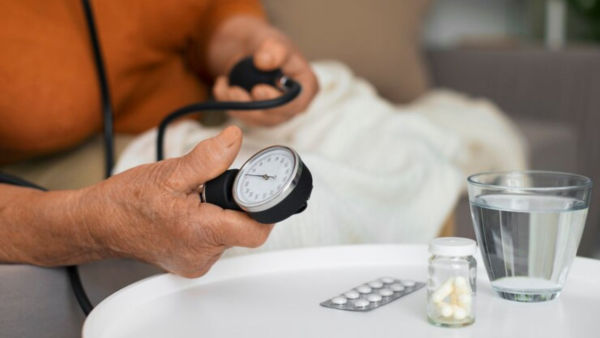
High Blood Pressure: High blood pressure i.e. hypertension has become a common problem nowadays. This problem not only affects physical health, but also has a profound effect on mental health. When the blood pressure increases much more than normal, it can damage various organs of the body, especially the brain veins. Hypertension may also increase the risk of brain vein burst, which in medical language "Stroke" These "Brain haemorrhage" It is said.
Excess of blood pressure not only affects the heart and kidney, but it also has the ability to harm brain veins. According to experts, when blood pressure reaches 180/120 mm HG or above, this condition can be extremely dangerous. In such a situation, bursting of brain veins can prove fatal for life. Let us know how the vein of the brain can burst due to high blood pressure and what measures we should adopt to avoid it.
When blood pressure increases extremely, it puts pressure on the blood vessels. This pressure on the small and delicate veins present in the brain has more effect. If the blood pressure remains uncontrolled, the risk of these veins burst increases. This causes bleeding, which is called brain haemorrhage. In the event of bleeding in the brain, the patient may feel strong headache, dizziness, confusion, or weakness in the body on one side.
According to experts, if someone's blood pressure goes above 180/120 mm HG, it is one "High-risk" The situation is considered. This "Hypertensive chrysis" It is also called, which requires immediate treatment. After this limit, serious problems like bursting of brain veins, heart attack, or kidney failure can arise. If the blood pressure is around 140/90 mm HG, it is considered a normal condition, but it is necessary to seek medical assistance immediately as soon as 180/120 mm HG is crossed.
Stroke or brain haemorrhage is a very serious condition in which blood leakage occurs due to brain vein. Symptoms of this include sudden weakness in a part of the body, problems in speaking, and balance deterioration. If any of these symptoms appear, contact the doctor immediately.
Healthy diet: To control high blood pressure, reduce salt intake and eating fruits, vegetables and grains is beneficial.
Exercise: Regular exercise can control blood pressure. At least 30 minutes of walk or light exercise is beneficial.
Reduce stress: Excess of stress and anxiety can increase blood pressure, so it is necessary to maintain mental peace.
Regular check -up: It is important to get regular checkups of blood pressure regularly and control it. According to the advice of the doctor, also consume medicines.